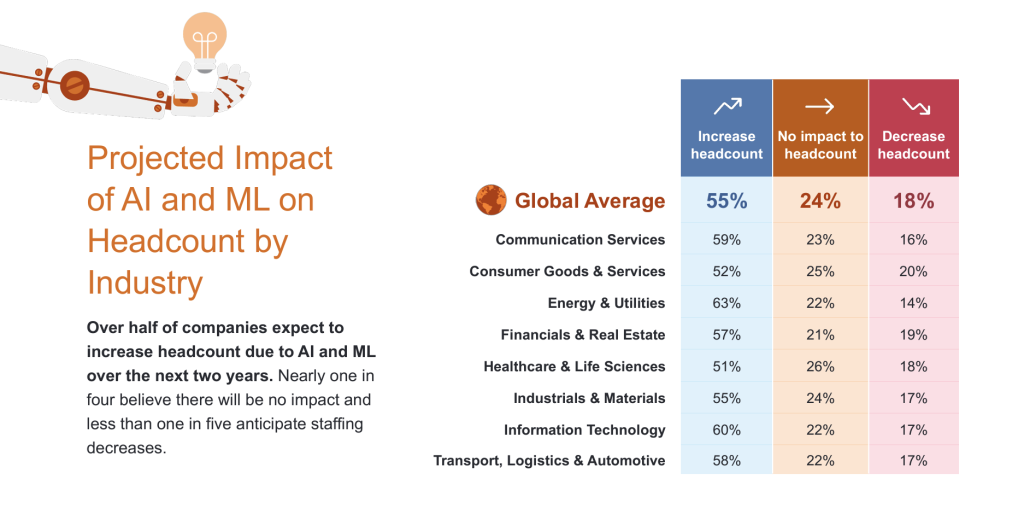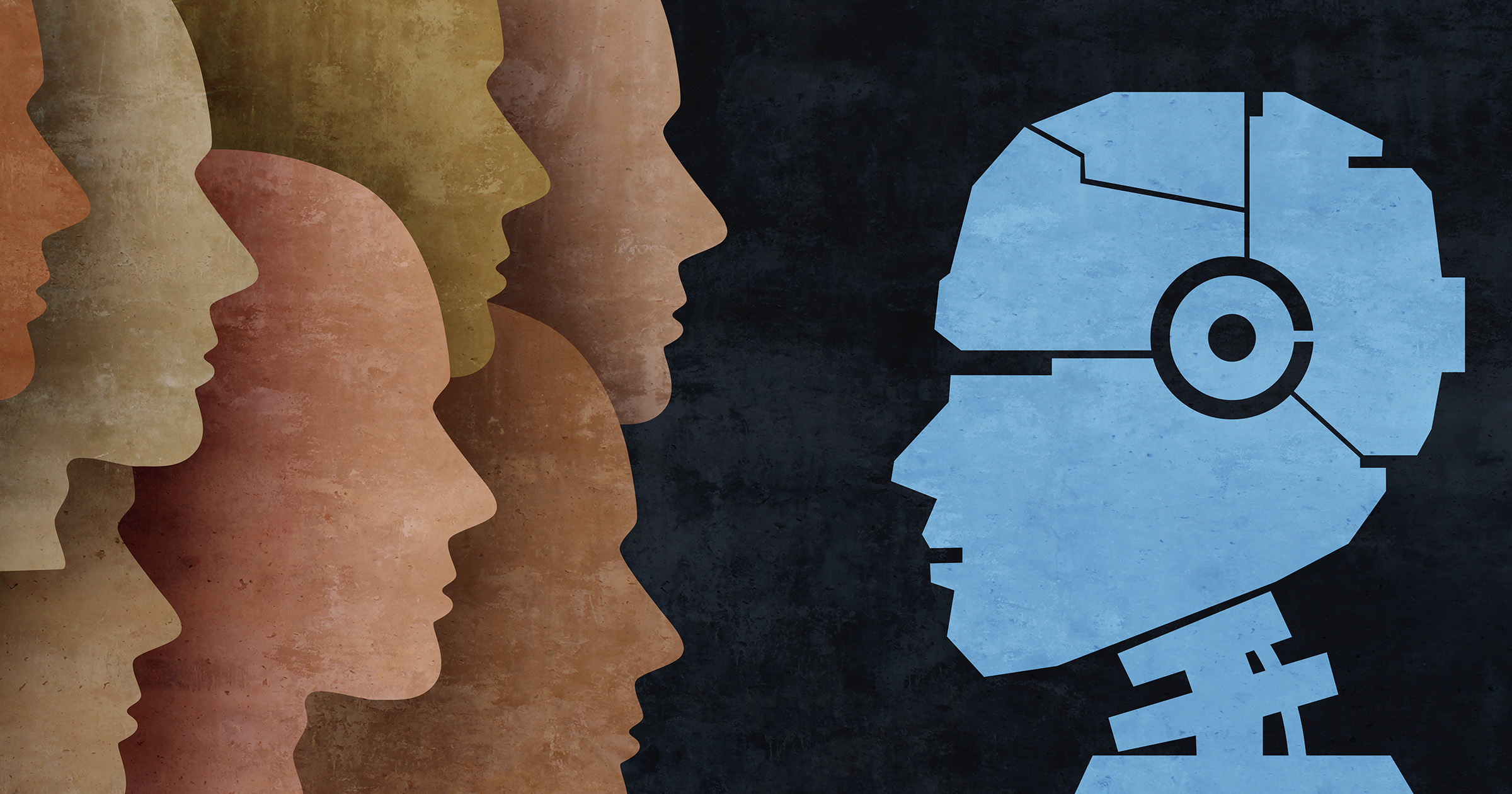The impact of AI on the workplace is still a big unknown, with hiring going up in some businesses and falling in others.
However, those predicting doomsday scenarios of artificial intelligence making most of us redundant may have just received a big boost in an article published by the BBC two days ago. The story details how an entire team of 60 people was replaced with just one guy working with ChatGPT, before he was axed too.
Freeing humans from creativity
As the recent humorous but bitter observation goes, humans were hoping AI could free them from mundane tasks, so they can focus on making art or writing, but it’s quite the opposite.

ChatGPT is writing poems, Midjourney is doing art, and humans are, at most, making sure that their output looks more natural.
This is the reality of the writer in the BBC’s report, who was employed in charge of a content creation team for a company reselling data:
He led a team of more than 60 writers and editors, publishing blog posts and articles to promote a tech company that packages and resells data on everything from real estate to used cars. “It was really engaging work,” Miller says, a chance to flex his creativity and collaborate with experts on a variety of subjects.
BBC, “AI took their jobs. Now they get paid to make it sound human”, June 17, 2024
It didn’t last long after the company leadership decided to introduce automation to content creation. At first, it was just about generating outlines for articles, which a human team would then write.
But before long ChatGPT was tasked with writing entire articles, leaving people to merely edit them to sound more human. Within another year, only the former team leader was left – this time doing everybody’s work with the help of OpenAI’s bot:
“Mostly, it was just about cleaning things up and making the writing sound less awkward, cutting out weirdly formal or over-enthusiastic language,” Miller says. “It was more editing than I had to do with human writers, but it was always the exact same kinds of edits. The real problem was it was just so repetitive and boring. It started to feel like I was the robot.”
And then, in April 2024, he was let go too.
AI is coming after freelancers first
While Miller’s story may be bone-chilling to millions of workers around the world, the reality is not quite as bad (yet).
According to ManpowerGroup’s Employment Outlook Survey for Q3 of 2024, more than half (55 per cent) of companies globally are expecting their headcounts to increase rather than decline because of AI. Less than one in five predicts AI will take more jobs than it creates.

Whether these trends will hold for long or if it’s just a temporary rush for talent before mass layoffs come, we do not know.
What we do know, however, is that ever since the launch of ChatGPT and subsequent AI tools like Midjourney, advanced versions of Dall-E, Stable Diffusion and so on, the demand for freelance jobs in writing, design and even some software development has decreased by about 10 to over 20 percent.
A recent report by Imperial College Business School, Harvard Business School, and the German Institute for Economic Research, analysing two million postings in 61 countries between July 2021 and July 2023, found that demand for writers and software developers has dropped by 21 per cent, followed by graphic design and 3D modelling jobs, recording a 17 per cent decrease, and data entry and social media post-production at 13 per cent.
These ad hoc jobs are the easiest to automate away by AI, though, since they involve employment on an as-needed basis. Trying out AI solutions is much easier than going through the process of screening and hiring a freelancer. After all, if generative tools don’t cut it yet, you can always hire a human later.
Trying to replace a permanent employee is considerably more risky and difficult. And if you make a mistake, it can be very costly as well.
It isn’t impossible, though.
Are we doomed?
Is AI really threatening our employment and any gains we may see in some industries are only temporary before robots learn how to beat us?
Quantitatively – that is, in terms of number of jobs available, probably not. There’s still much that humans are better at and which might not make sense automating for many decades to come. Qualitatively, however, more and more of us can be pushed back into mundane, physical or repetitive jobs.
Either those in which human dexterity is hard to match (think physical work in plumbing, welding, machining, maintenance etc.) or where, like in the story above, we’re charged with making robots sound or appear more human.
Mass unemployment is not particularly likely, since if it ever was to happen, the ensuing economic crisis caused by rising joblessness would freeze any investment long before it could reach catastrophic levels. This is because, if more of us humans struggle financially, consumption would fall, reducing corporate revenues as well.
However, mass degeneration of the kind of work we’re doing could create a completely new sort of inequality, in which either you’re part of a small human elite at the top, still performing creative, intellectual tasks in running business, and the broad rest of us filling in the gaps in work performed by intelligent machines.
We won’t be out of a job but we might be suffering nevertheless.
Featured image: lightsource / depositphotos

